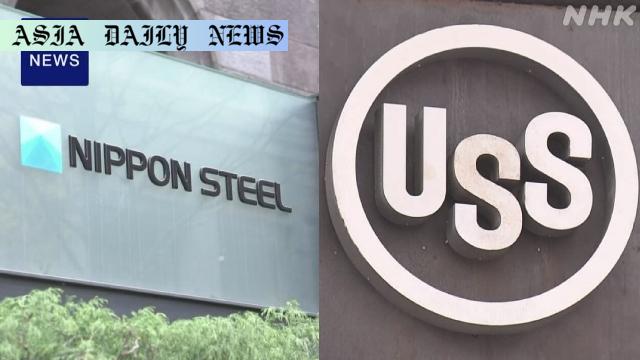Nippon Steel Vice President Mori Takahiro to meet with US Commerce Secretary over increasing investment in US Steel.

Nippon Steel’s Investment Ambitions and US Steel Buyout Goals
Nippon Steel, one of Japan’s largest steel producers, has laid out ambitious plans to acquire US Steel and position itself as a dominant force in the American steel industry. Reports indicate that this deal involves a significant investment of $2.7 billion, which will be utilized to modernize and enhance US Steel’s production facilities. This bold move underscores Nippon Steel’s commitment to expanding its footprint in foreign markets while addressing America’s growing infrastructural and manufacturing needs.
The meeting between Nippon Steel Vice President Mori Takahiro and US Commerce Secretary Howard Lutnick is a crucial milestone in these negotiations. Sources suggest that the conversation will heavily steer toward Nippon Steel’s intention to increase investments beyond the initial $2.7 billion. This demonstrates the Japanese company’s keenness to align with the US government’s goals of boosting domestic steel production capacity.
Challenges in Full Ownership and US Policy Restrictions
Despite Nippon Steel’s ambitious plans, hurdles remain. US President Donald Trump recently asserted that Nippon Steel’s control of US Steel should remain as a minority stake. This directive is likely rooted in concerns surrounding national security and foreign control of a critical industry. For Nippon Steel, this adds a layer of complexity as it aims to secure full ownership of US Steel, a goal that aligns with its global growth strategy.
Nippon Steel President Imai Tadashi has emphasized collaboration with the US government, stating that both parties are increasingly on the “same page” when it comes to bolstering America’s manufacturing and steel capabilities. His remarks suggest that Nippon Steel is maneuvering diplomatically to address US policy concerns and find a common path forward.
The Larger Implications for the Steel and Manufacturing Sectors
The potential Nippon Steel-US Steel partnership could significantly influence the global steel market. It promises to bring in technological advancements, improve production processes, and increase competitiveness for US Steel amidst growing international competition. By upgrading facilities and manufacturing capabilities, Nippon Steel hopes to also generate jobs, boost the local economy, and make an impactful contribution to the US industrial sector.
The potential infusion of funding and innovation may also align with the Biden administration’s push to “Build Back Better”, thereby fostering renewed momentum in infrastructure development. This partnership could act as a critical enabler for America’s aspirations to lead in sustainable and technologically advanced manufacturing.
Commentary
Nippon Steel’s Strategic Vision for US Steel Buyout
Nippon Steel’s bold attempt to acquire and fully integrate US Steel into its operations is a signal of advancing cooperation across global markets. The sheer scale of this proposal, fueled by an initial $2.7 billion investment, reflects the company’s confidence in the future of steel production in the United States. Furthermore, Nippon Steel’s extensive industrial expertise promises to enhance a sector that has faced numerous challenges in recent years.
Balancing Economic Vision with Policy Constraints
However, as promising as this partnership may appear, it faces understandable resistance. The directive from President Trump to limit Nippon Steel’s ownership speaks to broader concerns over foreign influence in critical domestic industries. While this is a valid consideration, it raises questions about how the US can invite global partnerships while sustaining sovereignty in essential sectors like steel. Finding a balance that leverages Nippon Steel’s capabilities while protecting US national interests will likely define the success of these negotiations.
Implications Beyond the Business Sphere
The potential collaboration highlights a broader trend of globalization and mutual economic dependence. If successful, it would demonstrate how partnerships with foreign giants can serve as catalysts for innovation and economic revival within the US. Additionally, it serves as an example of how international alliances can strengthen industries that are critical not just to one nation, but to entire global economies.
Overall, the Nippon Steel-US Steel negotiations reflect a transformative moment in global manufacturing. They stand as a testament to what can be achieved when nations and corporations align their goals for mutual growth and progress.


